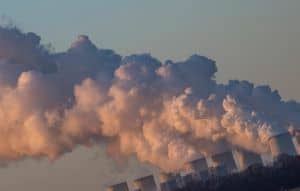Ecology current event articles track changes in the temperature at Earth’s surface, the atmosphere, and oceans. Human activity, especially fossil fuel combustion, deforestation, and land-use changes, have played a major role in the climate.

Articles about ecology tend to monitor these activities’ effects on our environment. Deforestation has been rampant due to the growing population, which has resulted in significant negative effects on the environment.
Deforestation affects many adverse aspects, such as decreasing oxygen levels (and increasing greenhouse gases), soil erosion, and destruction of animal habitats.
Another cause is the industrialization of agriculture, as in the last few centuries, it has led to a wave of counter-movements seeking to undo the negative effects of human intervention.
Table of Contents
Current event in ecology
Current event in ecology shows tremendous changes in both biotic and abiotic factors. There are more heavy precipitation events, glaciers and snow cover are shrinking, and sea ice is retreating. The ecological state of our planet is drastically changing, and no one but humans is to blame.

Human actions often take a long time to impact ecosystems. People usually manage ecosystems in a way that increases short-term benefits while ignoring long-term costs. This can shift the costs of current changes onto future generations.
Different ecosystem drivers take varying amounts of time to react to changes. When species lose their habitat, some may become extinct quickly, but others, like trees, may take centuries.
Therefore, reducing habitat loss may only have a small impact on extinction rates over the next half-century but lead to significant benefits in the long run.
Ecology current events
Ecology current events call for immediate action. These actions should involve efforts to reduce the amount and speed of future climate change by limiting emissions or removing carbon dioxide from the atmosphere.
Reforestation is one great way to do so. Carbon dioxide is naturally removed from the atmosphere by photosynthesis – and trees are especially good at storing that carbon.
The expansion, restoration, and management of forests can increase carbon uptake by harnessing the power of photosynthesis, converting carbon dioxide in the air into carbon stored in wood and soil.
Human ecology current events
Human ecology current events demonstrate humans are adding carbon dioxide to the atmosphere at a rate that is far greater than how natural processes are removing it.

This creates a long-term reservoir of the gas in the atmosphere and the ocean, driving the climate to a warmer state. The melting of ice caps causes sea levels to rise, which leads to tsunamis, cyclones, and other natural disasters.
Human ecology current events article
Human ecology current events article discusses the relationship between people and nature. This is vital for food production, maintaining clean air and water, and sustaining biodiversity in a changing climate.
Biodiversity extends beyond the collection of plants and animals on Earth. It is about promoting healthy ecosystems that support organisms.
Simple measures can be taken to sustain biodiversity, such as respecting local habitats. If you’re outdoors, make sure you stick to walking paths and hiking trails to preserve local biodiversity.
Recent ecology articles
Recent ecology articles discuss the threats to our environment. A recent study found that at least 1,829 out of 10,196 reptile species are at risk, putting them in a better position than the IUCN Red List estimates for mammals and amphibians.
An analysis of more than 24,000 species of birds, mammals, and reptiles shows that herbivores, especially big-bodied species, are more vulnerable to extinction than predators. Recent ecology articles
Recent ecology articles highlight that herbivores, who play a fundamental role in nutrient cycling, forest regeneration, and other key ecosystem services, are extremely vulnerable to human activities.